- About MAA
- Membership
- MAA Publications
- Periodicals
- Blogs
- MAA Book Series
- MAA Press (an imprint of the AMS)
- MAA Notes
- MAA Reviews
- Mathematical Communication
- Information for Libraries
- Author Resources
- Advertise with MAA
- Meetings
- Competitions
- Programs
- Communities
- MAA Sections
- SIGMAA
- MAA Connect
- Students
- MAA Awards
- Awards Booklets
- Writing Awards
- Teaching Awards
- Service Awards
- Research Awards
- Lecture Awards
- Putnam Competition Individual and Team Winners
- D. E. Shaw Group AMC 8 Awards & Certificates
- Maryam Mirzakhani AMC 10 A Awards & Certificates
- Two Sigma AMC 10 B Awards & Certificates
- Jane Street AMC 12 A Awards & Certificates
- Akamai AMC 12 B Awards & Certificates
- High School Teachers
- News
You are here
Prizes and Awards at the Joint Mathematics Meetings in Atlanta
Prizes and Awards at the Joint Mathematics Meetings in Atlanta
By Fernando Gouvêa and Joe GallianMany prizes and awards were announced at the Joint Prize Session held on Thursday, January 6 at the Atlanta Joint Meetings. With a large audience at hand, the presidents of the MAA, AMS, and AWM announced their prizes and gave the winners the opportunity to respond. Full citations and responses from the winners of MAA prizes can be found at /news/012105citations.html. Information on the AMS prizes is online at http://www.ams.org/new-in-math/press/.
| Deborah and Franklin Tepper Haimo Award for Distinguished College or University Teaching of Mathematics | ||
|---|---|---|
Gerald L. Alexanderson  Jerry Alexanderson was described as a ?master teacher, an inspiration to both students and colleagues,? who has also been ?indefatigable? as a writer and editor. The citation noted that he has the reputation of being not only the best teacher in his department, but also one of the most demanding. In his response, Jerry noted that his friendship with Deborah Tepper Haimo made the award still more valuable to him. Jerry was unable to go to the meetings, so Frank Farris accepted the award in his stead. Jerry?s Haimo lecture was not cancelled, however: Frank brought along a DVD so that we could all hear Jerry?s What Secrets? talk, a notable moment from which was when Jerry (who teaches at Santa Clara University) explained that he didn?t do ?small group activities? because his classes already were small groups. |
Deborah Hughes-Hallett 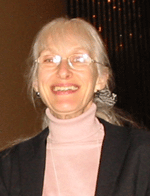 Deb Hughes Hallett was honored for her ?superb skills in the classroom? and for her pioneering work on the curriculum and pedagogy of mathematics courses aimed at wide constituencies, from introductory calculus (in the Harvard-based Calculus Consortium) to business mathematics (at the University of Arizona). She has also done extensive work with adult learners. ?To Deb, no question is annoying, no student is beyond help.? In her response, she thanked her students for having guided her efforts to understand their thought processes. ?I am honored,? she said, ?to have watched so many students find their mathematical wings and soar.? Deb was in Atlanta, but she missed the Prize Session. Fortunately, she was on hand for the Awards Banquet and was able to give her talk at the Haimo session. |
Aparna Higgins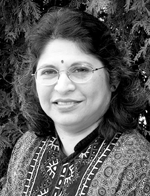 Aparna Higgins, ?one of the dynamos of the U.S. mathematical community,? was honored for her genuine connection to, and understanding of, students. ?She teaches with passion and high expectations.? It is ?her love of all things mathematical and the desire to encourage others,? says the citation, that ?fuels her charisma, energy, and enthusiasm.? Also noted was her work with the MAA?s Project NExT. In her oral response, Aparna said that ?The MAA is a fabulous professional organization? and I would say this even if I were not getting this award.? She thanked many people, including in particular several associated with NExT. She also thanked her husband, Bill Higgins, mentioning one important contribution in particular: ?How do you balance your professional and your personal life? I don?t know; Bill does that for us.? |
| Section Certificate of Meritorious Service | ||
Charles Cable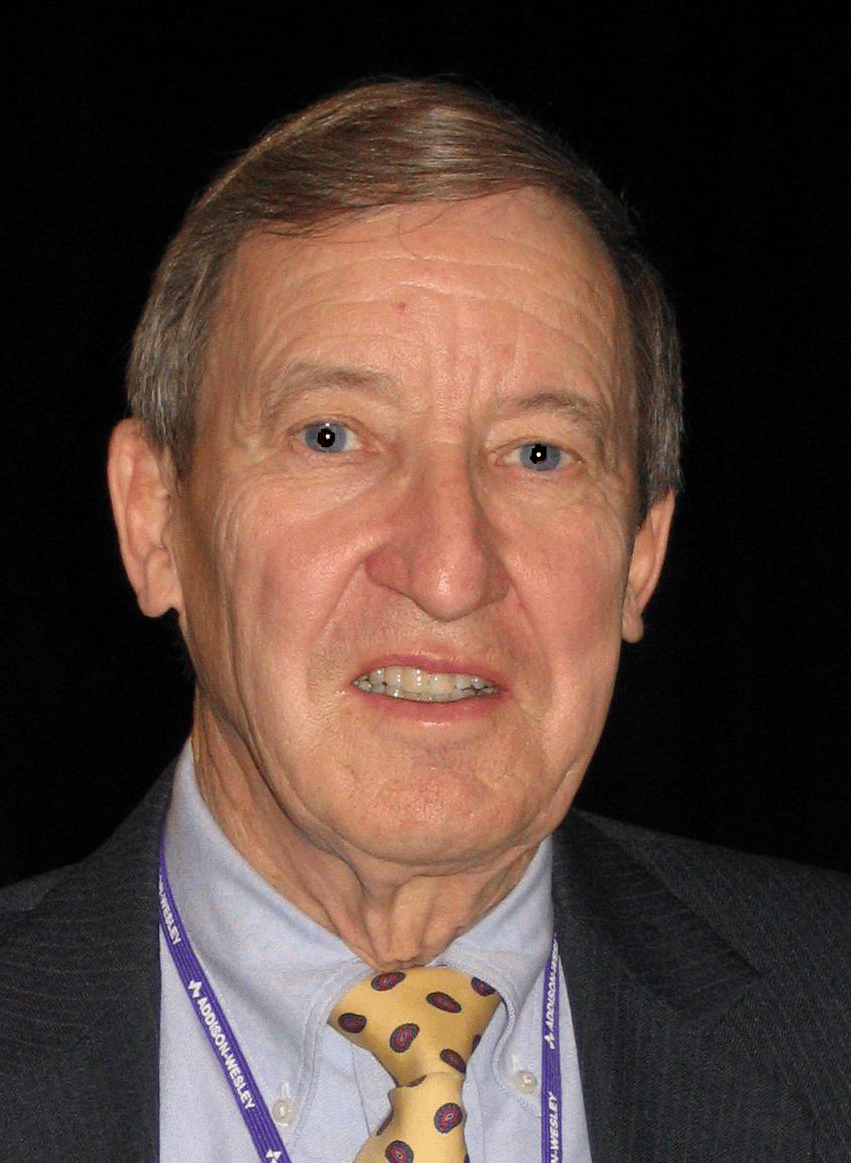 The Allegheny Section honored Charles Cable for 30 years of service to the Association. They particularly noted his support for the Student Chapters program and for his work towards making the mathematical community more hospitable to women. In his response, he said ?When my initial efforts to form Student Chapters were unsuccessful, I was quite disappointed and I gave up. However, several months later Paul Halmos urged me to try once again saying that sometimes it takes a while to get used to new ideas. I followed his suggestion and found that he was correct. This persistence eventually paid off.? |
Jon Scott The Maryland-DC-Virginia Section honored Jon Scott for his service both to the section and to the Association as a whole. He held several administrative posts within the section, from serving as Governor to managing book sales at section meetings. At the national level, the citation mentioned Jon?s work on the PREP program, his involvement with the just-released Leading the Mathematical Sciences Department: A Resource for Chairs, and his work on MAA-NSF-DUE poster sessions at national meetings.. | Barbara Osofsky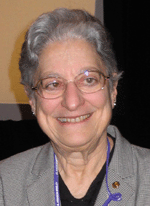 The New Jersey Section chose Barbara Osofsky to receive their Certificate. An MAA member since 1958 (and a life member since 1986), Barbara has been active in many different aspects of the Association, from being Governor of her section to being First Vice President. Along the way she served on (and sometimes chaired) editorial boards, award committees, and program committees. In her response, she said that as she began to attend meetings and participate in committees, she ?became more and more in awe of the many MAA visions of what the undergraduate mathematical experience might be, the insights of our members on how to get there, and the incredibly large amounts of time and effort spent by my MAA colleagues to further the goals of the Association?. I am very grateful to have had the chance to work with such dedicated people in our common cause.? |
| Section Certificate of Meritorious Service | Section Certificate of Meritorious Service | Bechkenbach Book Prize |
Roy Deal, Jr.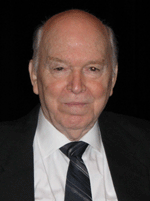 The Oklahoma-Arkansas Section honored Roy Deal for his long-term service to the section, which stretches all the way back to 1954 when he first chaired it. According to the citation, Deal has probably given more lectures at section meetings than any other individual, and continues to participate intensely in section activities even after his retirement. In his response, Roy described receiving this award as ?a highlight in my long, happy association with the MAA, since Nathan Altshiller Court drove to my house, ten miles out in the country, in December 1939 to talk my parents into giving me my first membership in the MAA for Christmas that year.? |
Ernie Solheid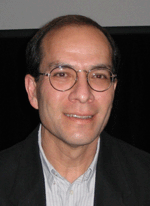 The Southern California-Nevada Section recognized Ernie Solheid for his seven years of work as Meeting Coordinator for the section. Ernie was appointed to the post when Barbara Beechler, who had been Secretary-Treasurer, Meeting Coordinator and Newsletter Editor all at once for many years, stepped down for health reasons. Those were large shoes to fill, but Ernie?s work ?has been impeccable.? Barbara herself thought so, telling Mario Martelli that his suggesting Ernie for the job was one of the best services ever done for the section. |
James Tanton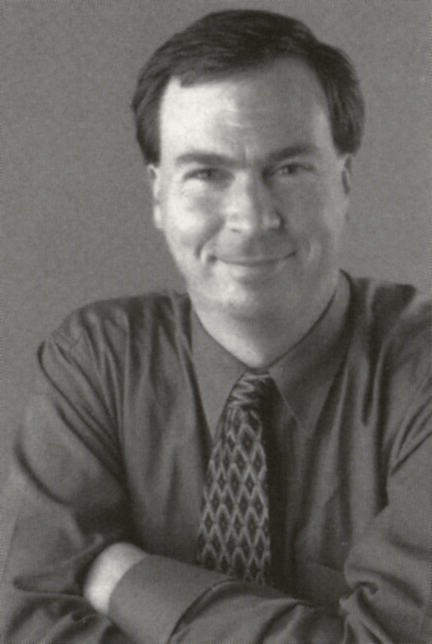 Noam The Beckenbach Book Prize, which honors the author of a distinguished and innovative book published by the MAA, was awarded to James Tanton for his book Solve This: Math Activities for Students and Clubs, described as ?fresh and different? and as a book that ?causes, coerces, and induces the reader to think about mathematics in non-conventional ways.? Tanton was unable to be present at the meeting, but described himself as ?flattered and honored.? He expressed the hope that his book would ?foster a sense of personal mathematical enquiry and, moreover, encourage adaptability of the mind.? He also mentioned that a sequel, Solve This Too, is forthcoming. |
| Leroy P. Steele Prize for Seminal Contribution to Research | Leroy P. Steele Prize for Mathematical Exposition | Leroy P. Steele Prize for Lifetime Achievement |
Robert P. Langlands The ?Langlands Program? has had a fundamental role in number theory ever since it was first formulated, in ?Problems in the Theory of Automorphic Forms,? a paper by Robert Langlands published in 1970. The Steele Prize recognizes the importance of that paper and of the work that followed, which established partial results that confirmed Langland?s amazing vision of where the theory might go. In his written response, Langlands said that ?I did not, as I now believe, appreciate until quite recently the real import of these suggestions and the depth one would have to attain to solve the problems posed. Unfortunately, it may now, at least for me, be too late for boldness.? On receiving the award, he repeated this, but then added, ?On the other hand, sometimes I feel it?s not too late.? |
Branko Grünbaum
 The Leroy Steele Prize for Exposition went to Branko Grünbaum for his book Convex Polytopes (whose second edition, prepared by Volker Kaibel, Victor Klee, and Günter Ziegler, was on sale at the meeting). The book was described as ?a standard reference and an inspiration for three and a half decades of research in the theory of polytopes.? Unfortunately, Grünbaum was unable to attend. |
Israel M. Gelfand
Gelfand, who was unable to attend, was honored for a lifetime of work in a huge number of mathematical topics and for his influence on many other mathematicians and students of mathematics. In his response, Gelfand said that ?Mathematics for me is a universal and adequate language of the sciences and it is an example of how people of different cultures and backgrounds can communicate and work together.? |
| Yueh-Gin Gung and Dr. Charles Y. Hu Award for
Distinguished Service for Mathematics | Levi L. Conant Prize | |
Gerald L. Alexanderson The MAA?s most prestigious award went to Jerry Alexanderson in recognition for his long and distinguished career. The Gung-Hu award is intended to honor service to mathematics that has been widely recognized as extraordinarily successful. Jerry?s long record as mathematician, administrator, author, editor, MAA officer, and enthusiast for mathematics fits that description perfectly. Look for an extensive appreciation of Jerry?s contributions to mathematics in the March issue of the American Mathematical Monthly. |
Allen Knutson
and Terence Tao
The Levi Conant Prize for the best expository paper in either the Notices or the Bulletin of the AMS went to Allen Knutson and Terence Tao, for their paper on ?Honeycombs and Sums of Hermitian Matrices,? which describes a method for attacking a problem originally due to Hermann Weyl: how do the eigenvalues of the sum of two Hermitian matrices relate to the eigenvalues of the summands? Neither Knutson nor Tao were at the meeting, but both expressed their gratitude and surprise at receiving the award. |
|
| Ruth Little Sattler Prize in Mathematics | Bôcher Memorial Prize | Albert Leon Whiteman Memorial Prize |
Svetlana Jitomirskaya
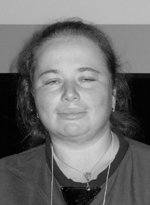 The Sattler Prize is awarded every two years to recognize an outstanding contribution to mathematics research by a woman. Jitomirskaya received the prize for ?her pioneering work on non-perturbative quasiperiodic localization.? Accepting the award, she noted that it had been awarded in the past to some women whose mathematical work is now very well known and respected and who had, in fact, served as inspiring role models for her. She hoped that the award would inspire her to continue to follow their example. |
Frank Merle
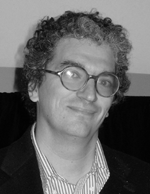 The Bôcher Prize for notable work in Analysis was awarded to Frank Merle of the Université de Cergy-Pontoise for his work on nonlinear dispersive equations. After thanking the Society for the award, Merle also thanked those who got him started on the subject and who influenced him over the years, citing in particular Jean Bourgain, Carlos Kenig, and George Papanicolao. |
Harold M. Edwards
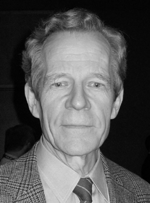 The Whiteman Prize is awarded for notable exposition in the History of Mathematics. Harold M. Edwards received the award as a ?tribute to his many publications over several decades that have fostered a greater understanding and appreciation of the history of mathematics, especially of the theory of algebraic numbers. Edwards is particularly well known for his emphasis on ?reading the masters? and for his interest in Kronecker?s vision of a constructive approach to mathematics. In his response, Edwards singled out three people for thanks: Raoul Bott, his thesis advisor; Morris Kline, who hired him at NYU and encouraged him in his historical work; and Uta Merzbach, ?whose sharing with me of her expertise and experience in historical research was my only education in such work.? |
| JPBM Communications Award | AMS Book Prize | |
Barry Cipra
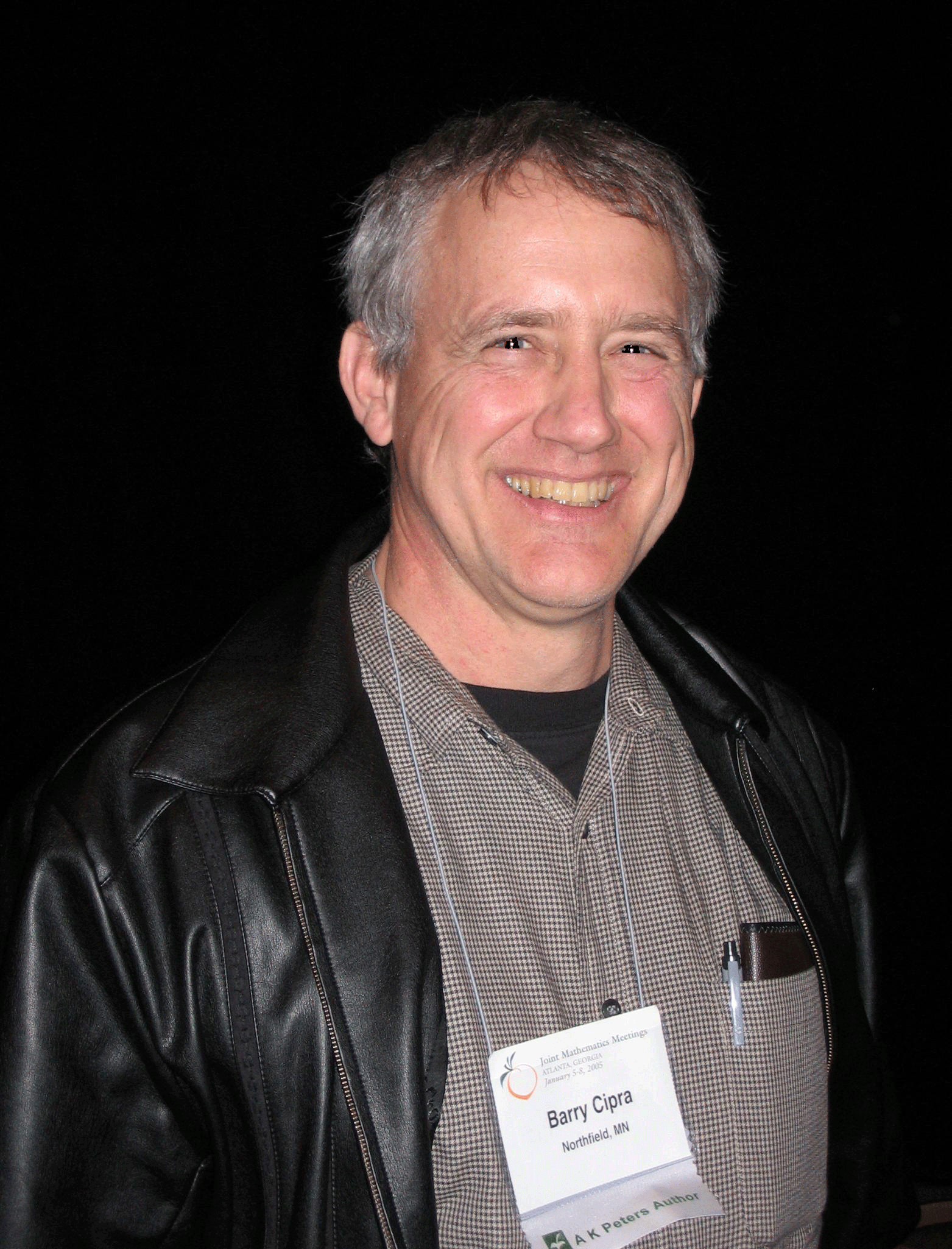 The JPBM, whose members are MAA, AMS, SIAM, and ASA, created this award to honor those who have made significant contributions to public understanding of mathematics. Barry Cipra, this year?s winner, is a freelance journalist who writes about mathematics in a very wide range of venues. ?Barry Cipra,? says the citation, ?has given his readers a greater understanding of the ideas of mathematics, but most importantly he has changed their perception of the nature of mathematics.? Accepting the award, he also demonstrated the importance of good editing by displaying a quote from (he said) a well-known mathematician that could be read as either high praise or a serious put-down. He particularly thanked those editors who had helped improve the quality of his work over the years. | William P. Thurston
 The AMS Book Prize was established in 2003 to recognize a single, relatively recent, outstanding research book. This year?s winner was William Thurston for his book Three-Dimensional Geometry and Topology (edited by Sylvio Levy). Based on a set of notes written 20 years ago and circulated in samizdat form for many years, the book is a kind of manifesto for Thurston?s program to understand and classify all three-manifolds that includes the famous Geometrization Conjecture. | |
| Blumenthal Trust for the Advancement of
Mathematics Prize Leonard M. and Eleanor B. Blumenthal Award for the Advancement of Research in Pure Mathematics | Alice T. Schafer Prize for Excellence in Mathematics by an Undergraduate Woman | |
Manjul Bhargava
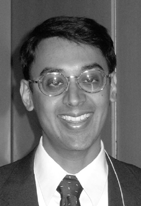 The Leonard M. and Eleanor B. Blumenthal Trust for the Advancement of Mathematics offers this prize to ?the individual who is deemed to have made the most substantial contribution in research in the field of pure mathematics, and who is deemed to have the potential for future production of distinguished research in such field.? The committee has decided to grant the award for the most substantial Ph.D. thesis produced during the last four years. The 2005 award went to Manjul Bhargava of Princeton University for his 2001 dissertation, entitled ?Higher Composition Laws.? Bhargava is well known to FOCUS readers, having won the Morgan Prize and various other honors, including his listing as one of Popular Science magazine?s ?Brilliant 10? in 2002. |
Melody Chan
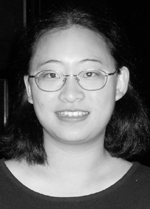 The Association for Women in Mathematics presented the fifteenth annual Alice T. Schafer Prize for excellence in mathematics to Yale senior Melody Chan at the Joint Meeting in Atlanta. The prize selection committee cited her course work at Yale and the Budapest mathematics program and her four professional level research papers written at the REU programs at East Tennessee State University and the University of Minnesota Duluth. Various letter writers called her research ?ingenious,? ?remarkable,? and ?beautiful.? At Yale, Melody received the Hart Lyman Prize and is Vice President of the Phi Beta Kappa chapter. Melody is an accomplished violinist who has performance on national public television live from the Lincoln Center in New York with Itzhak Perlman. She plans to study mathematics at Cambridge University in 2005-2006 then return to the United States to pursue a Ph. D. in mathematics. The AWM selection committee named Margaret Doig of Notre Dame and Elena Fuchs of UC Berkeley as runner ups for the prize. Both were cited for their course work and research. |
|
| AWM Prizes Louise Hay Award for Contributions to Mathematics Education | ||
Susanna S. Epp
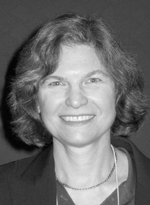 The Hay Award was given to Susanna Epp ?in recognition of her exemplary and broad range of contributions to mathematics education.? Among others, the citation notes her interest in teaching analytical thinking and proof, her textbooks, her work on the CUPM Curriculum Guide, and her work with Project NExT. Accepting the award, Epp said she was gratified by the increasing interest in mathematics education with the community, and noted that about one third of the abstracts of talks at the Joint Meetings dealt with mathematics education. | ||
Click here for the article on the winner and runner-up of the Morgan Prize




